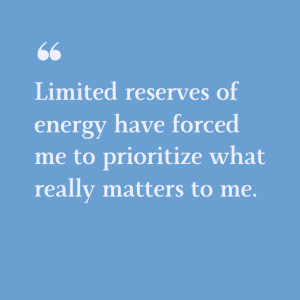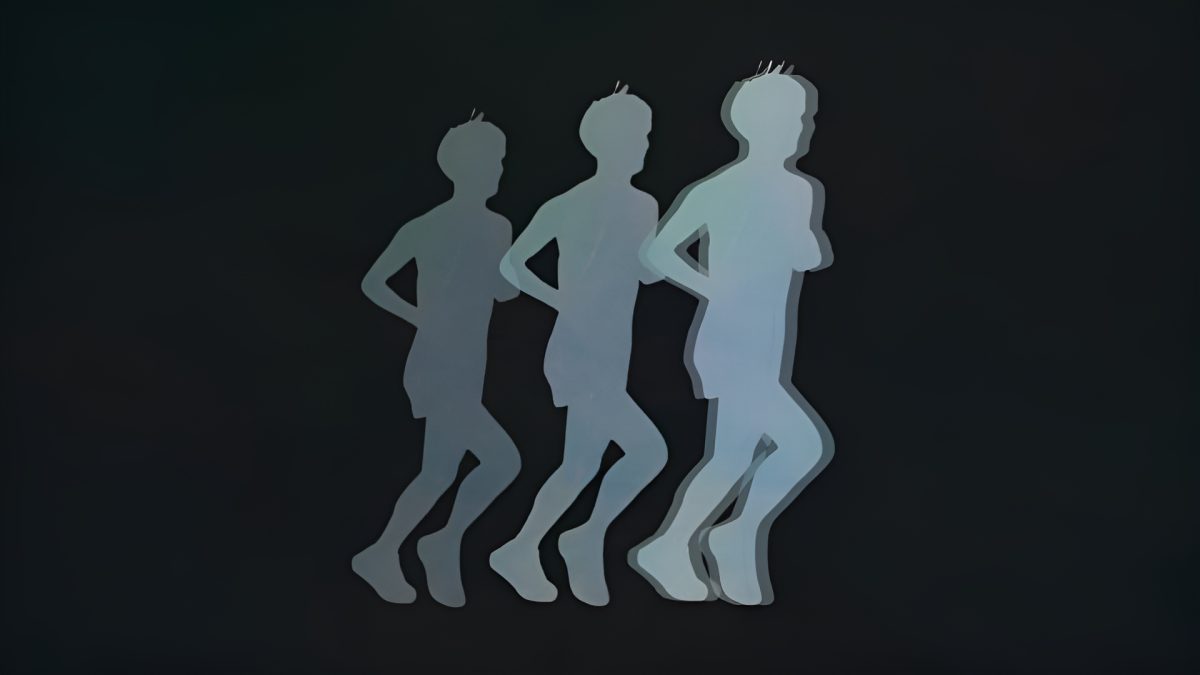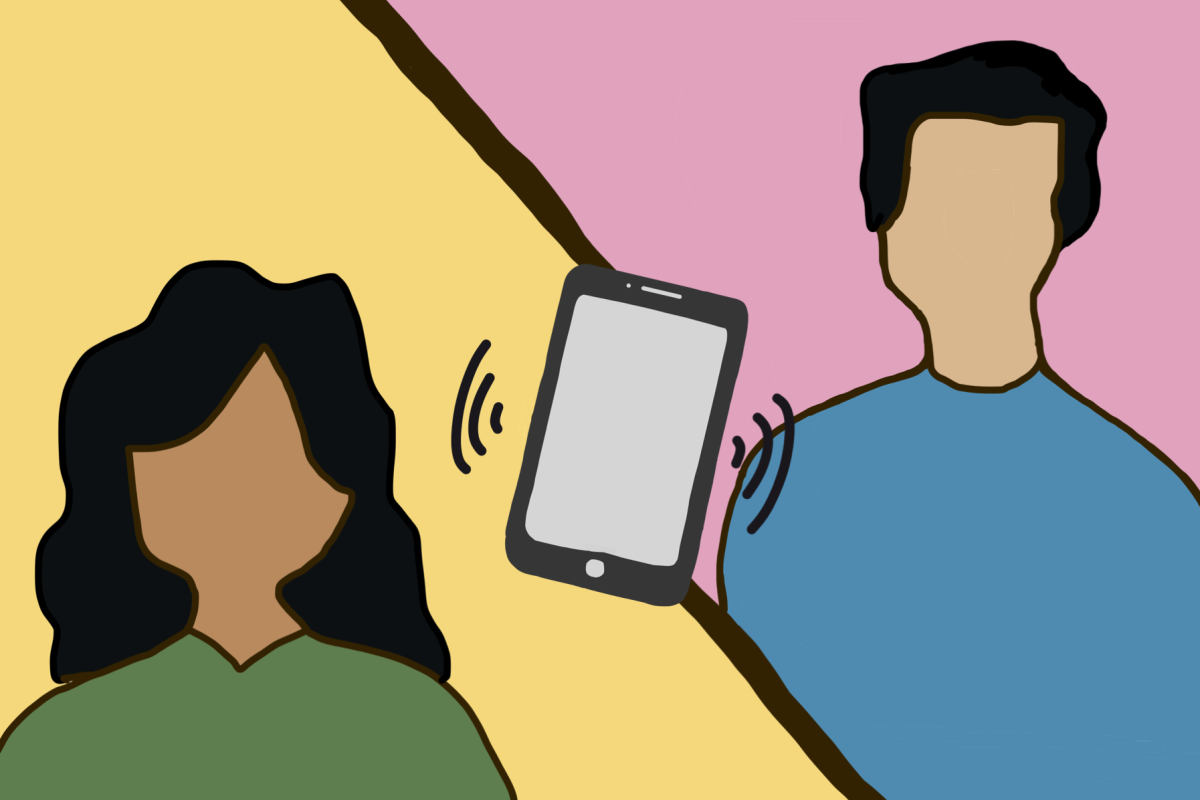I’m one of the only people I know with a game plan for standing up. It goes something like this: Take a deep breath. Stand up well before you need to be standing and tighten your legs while you wait for the inevitable wave of vertigo. Do your best to stay stable and standing if darkness creeps up on your peripheral vision and splotches of bright colors cloud your view (beautiful, but an unfortunate precursor to losing consciousness). If it gets dizzying enough, be ready to cut your losses, apologize to whichever poor witness is present, and clumsily crouch down to the floor while you still can.
These symptoms are uncomfortable but unsurprising — I live with a genetic blood disease that inhibits my production of healthy hemoglobin and makes me constantly physically ill, most commonly with nausea, extreme fatigue, fainting and dizziness. My symptoms are easily exacerbated by normally harmless conditions like climbing stairs, catching colds and postural changes, and I’m always budgeting my energy so as to not run myself dry. Most of my daily plans prioritize damage control and minimizing discomfort above all else.
After 16 years, I still struggle to reconcile myself with this unsolvable illness, especially as I’ve recently become the sickest I’ve ever been. Living with perpetual symptoms is a mental battle as much as it is a physical one, and I am constantly exhausted from trying to match the academic and athletic rigor of my healthy peers in school and dance.

Over time, I’ve compartmentalized my mental war with processing chronic illness into several distinct battlefronts. The first is grief, mourning the visceral loss of the person I could have been with the health I don’t have. It’s crying looking at pictures of my healthy days on the days it feels unthinkable to roll over on the couch, and it’s realizing that every future I conceptualize has to make space for sickness weighing me down.
The second part of this process is anger — I have so much indignation, so much rage, and still no real place to direct it. I can and will be angry at everything and everyone, including my parents (I resent them for the genetics that doomed me), doctors (in my younger and more volatile days, I took a violent bite of my hematologist’s arm) and myself (I can’t stand anyone unreliable and undependable, and I let people down more than anyone else I know). Still, I know the truth is that it’s no one’s fault that I’m sick and no one’s obligation to make me better. I haven’t been personally victimized by any villain, and the curse of my chronic illness is an unfairness that has no real perpetrator.
The last and most debilitating mental obstacle to overcome is burnout. It’s exhausting to have to ration my energy to get through the simplest of daily tasks with the end goal of doing nothing but surviving until the next day.
I’ve had my entire life to accept this indefinite reality. However, I still find myself consumed by its mental weight, constantly oscillating between taking my symptoms in stride and losing the energy to keep going. Despite this, wallowing in misery does get monotonous, so over time, I’ve figured out how to live with my illness as best I can. I recognize that not everyone will understand or accommodate my needs, so I’ve had to find strategies to function the best I can in a world that’s not always designed for me.
As much as chronic illness has taken from me, I’ve found light in the darkness — I believe that these strategies have, strangely, made me a resilient and uniquely compassionate person. I’m more empathetic because I know what it’s like to summon everything you have and still fall short. I have a newfound appreciation for the little joys in life, like Diet Coke and wood ear mushrooms, and limited reserves of energy have forced me to prioritize what really matters to me.

Managing sickness has also, importantly, given me the tools to approach every problem I face in a much healthier way. I’ve learned that just like an illness, there are inevitably going to be mistakes you’re always susceptible to or flaws that you know are inherent in your character — for example, procrastination or impulsivity — that can inhibit the formation of productive habits and healthy relationships. Not every problem that you face is a hurdle that can be completely overcome or an obstacle that can be circumvented. Sometimes, there’s no cure, only management, and even small workarounds are achievements. It’s important to do what you can to prevent the situations that you know will make you express unhealthy patterns, just like how I minimize my symptoms by rationing my energy or standing up slowly.
It’s easy to crave the comfort of a savior or complete solution, but most issues that you’ll encounter are more complex and require a holistic approach. And just because an issue isn’t solved doesn’t mean it hasn’t taught you something meaningful — if you keep waiting for a miracle fix, your whole life will pass you by before you start enjoying it.
I know my chronic illness will follow me for my entire life, and there’s nothing I can do to change that. But going forward, I’m trying to make peace with my incapacities and let myself live — I will be overcoming my embarrassment to ask for accommodations when I need them, I will be wearing compression socks even though they look irrefutably stupid and I will be taking postural changes at a glacial pace to keep from blacking out. I’ll be proud of myself for days when I muster the strength to get up and go the extra mile, and I’ll try to forgive myself for days that I can’t. Because sometimes it’s all you can do to keep living when it gets hard.














